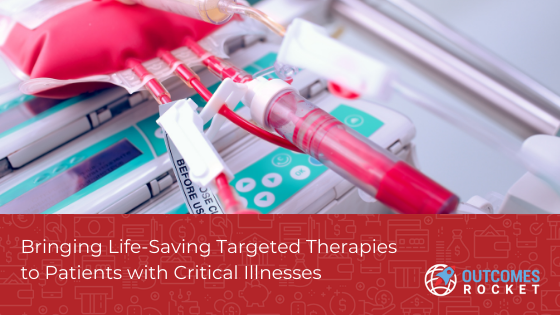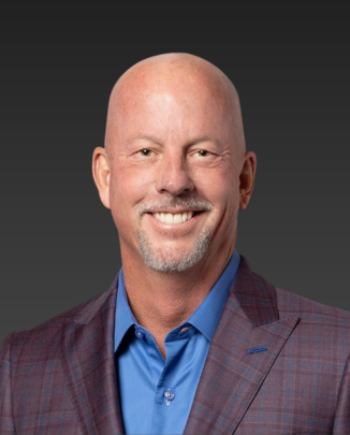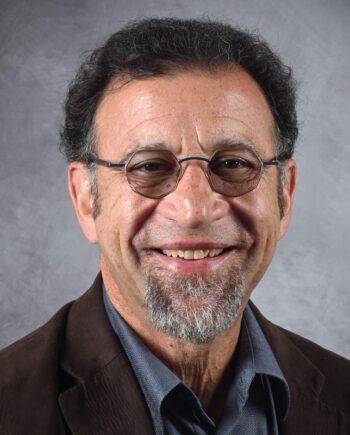
Every year, millions of people are affected by life-threatening conditions like sepsis and acute respiratory distress syndrome (ARDS).
Sepsis, as defined by the World Health Organization, is a “life-threatening organ dysfunction caused by a dysregulated host response to infection.” In the U.S. alone, it causes nearly 270,000 deaths a year and represents over $60 billion in healthcare spend. These days, we hear more about sepsis because of its connection to COVID-19; most patients who die with COVID-19 also have sepsis caused by the body’s immune reaction to SARS-CoV-2 infection.
Despite advances in diagnostics and treatment options, there is no FDA approved therapy for sepsis, only supportive care like ventilation and fluids.
Acute Respiratory Distress Syndrome (ARDS) is a life-threatening condition that occurs when fluid builds up in the person’s lungs, restricting the airflow and depriving organs of the oxygen they need to function. It is also one of the most primary causes of death for COVID-19 patients. Approximately 30-40% of patients who develop ARDS will die.
Part of the challenge is because illnesses like sepsis and ARDS are heterogeneous in nature — any episode can differ from another. While these patients exhibit similar symptoms, each patient’s biological response is distinct and because of this, each treatment should be tailored for the patients’ needs. To create a targeted treatment for each patient means time to analyze all data regarding the disease, time that many clinicians don’t have.
That’s why it is exciting to learn that Endpoint Health is creating an innovative solution that can improve outcomes in critical illnesses like sepsis and acute respiratory distress syndrome by creating therapies that are targeted to patients based on their biological response.
Endpoint Health is a targeted therapeutics company with the mission to improve outcomes for critically ill patients through precision care. It focuses on optimizing all the care for a given indication.
The company aims to develop the means to define and identify the underlying biology that make up critical syndromes, which are then individually targeted with specific therapies.
In my interview with Diego Rey, co-founder and Chief Scientific Officer at Endpoint Health, he described the company’s three-fold solution.
“We’ve developed two platforms at Endpoint. One is a software system that captures digital data from the electronic health record and runs machine-learned models using this data on the cloud. And what these models do is identify biologically defined subgroups in the first use in acute respiratory distress syndrome patients, another condition that is very common in COVID-19. The second platform we’ve developed is an in vitro diagnostic blood test that measures expression levels of specific mRNA molecules from critically ill patients from a blood sample. We use this to identify subtypes of sepsis patients based on their immune response. These subtypes likewise are also predictive of differential therapeutic response. So at the end of the day, we have a software tool and in vitro diagnostic tool, each which can be used as companion diagnostics, “ he continues, “ And finally, our business model is actually to then in-license or co-develop clinical-stage therapies, and then use these tools to enable the appropriate trials that target the therapies in these trials. And the reason for this model is that we’ve actually identified many previously already developed therapies, many of which actually were previously attempted in sepsis that we think have a high likelihood of success in sepsis when actually targeted to the right patients. “
By leveraging AI, Endpoint aims to analyze data and identify subgroups, which are further analyzed to see how they respond to already existing therapies. The results of this approach can equip clinicians with new therapies that can be used to treat critically ill patients, something that’s an urgent need as we are still suffering from the pandemic.
While other companies create therapies then sell them to pharmaceutical companies, Endpoint does not just create the treatment.
Diego explained, “ the other thing that’s unique about this is that few companies are built from the ground up with integrated software, in-vitro diagnostics, and therapeutics all under one roof and really built to work together from the get-go. So on top of all this, with this integrated solution, what we then have the ability to do is capture data also from existing care and link it back to outcomes. This enables us to not only develop new therapies but also to optimize existing care.”
By creating an integrated platform, Endpoint can easily access, analyze, and then create personalized treatment approaches.
Diego said that they are looking forward to further validating their observational studies and retrospective analyses through prospective randomized controlled trials. Upon the completion of a successful clinical trial, the integrated therapy will be commercialized by Endpoint and their partners.
Founded in 2018, Endpoint boasts of an experienced executive team including the co-founders of GeneWEAVE, an infection detection and therapy guidance company that was acquired by Roche in a 2015 deal valued at $425 million.
This year, the company received $12 million equity and debt financing from top-tier investors including Mayfield, Y Combinator, AME Cloud Ventures, and Wireframe Ventures, allowing it to advance its research and clinical trials initiatives.
The company is based in Palo Alto, Calif., with offices in Detroit and Chicago. Endpoint has approximately 17 full-time employees.
According to the 2020 Centers for Disease Control and Prevention report, roughly 34.2 million Americans have diabetes,...
Read MoreAs a farmer, Rod was used to long days. He worked 18 hours a day, 7 days...
Read MoreWith investors receiving hundreds of pitch decks every year, how do you create a compelling presentation that...
Read More
Brittany Busse Co-Founder, President, and Chief Medical Officer at
ViTelHealth


Stephen Thorne Founder and CEO at
Pacific Dental Services

Keith Carlson Nurse Career Coach